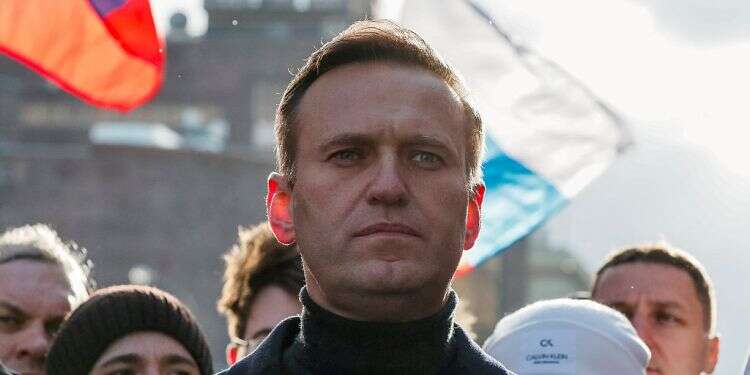How often in life do we get the opportunity to see the journey of a person who can be described as "larger than life" without any exaggeration? The ordeal of Russian opposition leader Alexei Navalny is one such case.
Follow Israel Hayom on Facebook and Twitter
For years, he and his men have battled the corruption that characterizes every layer of Russian rule. His investigations into corruption by elected officials gave him popularity, which the Kremlin found increasingly difficult to tolerate.
In August, Navalny became known worldwide when he survived assassination by means of a nerve agent, allegedly by the Federal Security Service. He was evacuated to Berlin and upon recovery, he immediately resumed his effort to expose corruption, including working on the Putin's Palace documentary.
However, what turned Navalny into a hero of extraordinary proportions was his decision to return to Moscow, knowing full well that what awaited him upon arrival was arrest, imprisonment, torture, and perhaps even death behind bars.
The first three have happened already: He was arrested as he arrived in Russia, then convicted of old and fabricated charges, and sent to a penal colony, where he was denied until recently a visit to the doctor to treat back pain. Navalny's requests for medical care have been repeatedly rejected. So he decided to go on a hunger strike, and the fourth stage might be just around the corner.
Navalny's story is captivating, for it is about a man who stands alone, armed with his body and his belief in justice, against an all-encompassing system that crushes any opposition.
The opposition leader's struggle is not just a personal one. It is not the Russian people's alone either. It is the struggle of any person who is unwilling to let fundamental human rights be ignored by a corrupt government.
Arresting anyone who speaks out against the government, be it politicians, journalists, or ordinary citizens, is evidence that Russia has turned into a penal colony, a process that could have implications on the entire world.
Therefore, by putting his life on the line, Navalny woke up millions from their indifference and has become a universal symbol of readiness to fight for justice. It is no coincidence that the Biden administration warned Russia that if Navalny dies, "there will be consequences." It is also no coincidence that more than a hundred well-known intellectuals signed a letter, which was published in Le Monde, calling on President Vladimir Putin to ensure Navalny receives adequate medical care.
I wish such support was expressed from Israel as well. Chances that the government would do so are slim, but what about academics, scientists, and writers? Are the concepts of liberty and human rights so foreign to us that we will only protect them when it comes to our own territory? Time has come to stand up for Navalny in the Jewish state as well. May this be a wake-up call for any civilized person.
Subscribe to Israel Hayom's daily newsletter and never miss our top stories!




